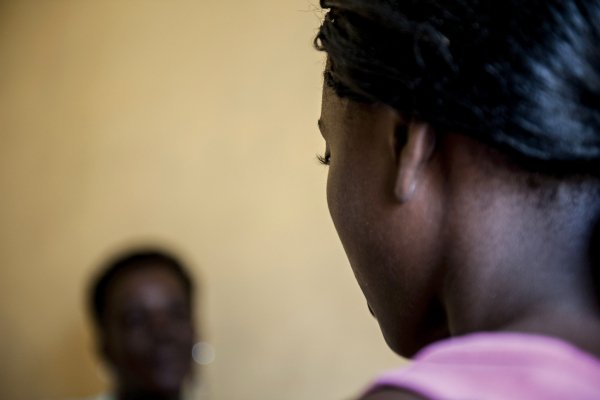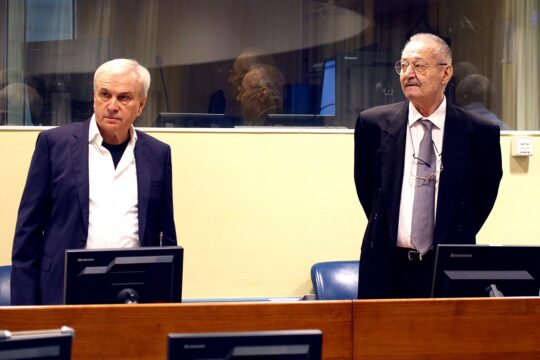Better fighting sexual violence in conflict, prosecuting perpetrators more efficiently and strengthening judicial procedures so that victims can get justice and reparation – this was the focus of a conference organized in Geneva by the NGO TRIAL International on June 18-19. TRIAL’s specialist in the field Lucie Canal talked to JusticeInfo about the progress made in the fighting such atrocities which have been ignored all too long.
JusticeInfo: Why this focus now?
Lucie Canal: For several years our organization has been working more and more on sexual violence, especially in the Democratic Republic of Congo (DRC), where we represent many victims of rape. This is expertise which we have acquired over time. We are now seeking to put more people working on documenting and prosecuting crimes of sexual violence in contact with each other. This comes as there is more international attention on the issue. We see this in the 2014 British initiative resulting in the publication of an International Protocol on the Documentation and Investigation of Sexual Violence in Conflict. In 2019 there will be a conference in London to review the commitments made in 2014. And we plan to present the concrete results of our conference.
Have wars always produced sexual violence?
Rape in time of war is unfortunately as old as the hills. It is the perspective on these abuses that has changed. Up to 1945, rape was considered as collateral damage of war, not really as a crime in itself.
When was sexual violence clearly designated a war crime under international law?
The first explicit mention of rape was in the Fourth Geneva Convention, although it was not considered as a serious war crime. The international tribunals for the former Yugoslavia and Rwanda brought a more precise definition of these crimes in international law. And then it was with the Rome Statute, founding treaty of the International Criminal Court (ICC) that a definition was drawn up of the elements constituting the crimes of rape and sexual violence in times of war or violent repression. These include, for example, forced prostitution, forced pregnancy and sexual slavery. .
We have moved from a view of rape as an aggression against male property to viewing it as a violation of the physical integrity and human dignity of victims. We should not forget that these crimes and the perception of them are part of patriarchal dynamics that exist first of all in peace time.
So this new awareness is part of the movement for women’s liberation?
It is intrinsically linked. Recognizing sexual violence in times of war goes hand in hand with recognizing equality between men and women and sexual violence in times of peace.
Is rape also used as a weapon of war to destroy communities?
Indeed, it is also like that that this crime can now be considered by international justice as an act of genocide. At the ICTY, for example, it was recognized as a means used to destroy the whole of an ethnic, religious or other group.
Has this increased awareness of rape as a war crime lifted the taboo that prevents victims talking about it within their communities?
There has clearly been some progress, because an increasing number of civil society actors are supporting victims, whether it be with legal, medical or psychological assistance. And the aim of our conference was also to put these actors in contact with each other so there can be as broad support as possible to victims.
But situations can be very different. In Nepal, there was a lot of sexual violence during the 1996-2006 war, and it remains very taboo. We are working with victims who have never been able to talk to anyone about it. If they did, they would have been excluded from their community. In other situations, like in the DRC, they sometimes get support from their families and community. Having said that, not all conflicts give rise to such crimes. And rape in time of war is not always perpetrated for the same reasons.






